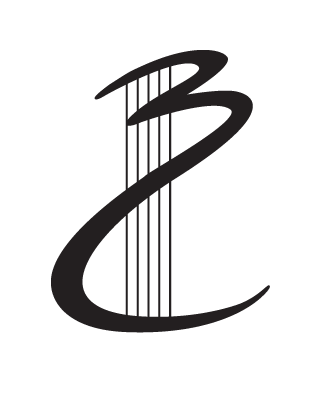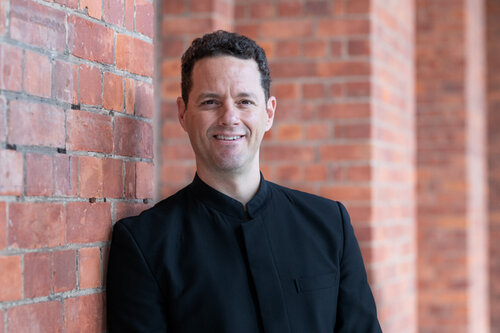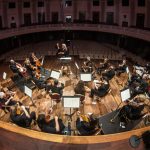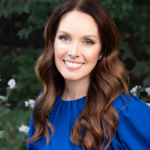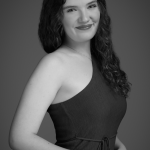You studied both clarinet and conducting at UQ. What made you decide you wanted to become a conductor?
Through the clarinet I discovered Mozart and Brahms. I started listening to EVERYTHING they composed, after which I moved on to Beethoven, Bach, Wagner, Strauss, Mahler……. Around the age of 14 I had a strong desire to shape a whole performance , not just play the clarinet part!
You’ve only recently returned from Germany where you spent many years working with, among others, the Hamburg State Opera, Komische Opera and Stuttgart Opera. How did your years there shape or influence your career as a conductor?
Germany has over 160 professional orchestras. Many small towns have a full time opera house. The density of musical activity is woven through German culture and society. My son sang Bach’s Christmas Oratorio and the Matthew and John Passions before he turned 10! And German people carry that sense of connection to their musical heritage and traditions with them. Personally I find this cultural identification with music as a necessary, lived experience very powerful. And of course there are many opportunities for young conductors to gain experience and opportunities. I am very grateful though to Simone Young and John Neumeier – both people gave me opportunities to learn, develop and build my career.
What shaped your decision to return to Australia?
Family! My wife and I are from Brisbane, we both have parents who live here, and brothers and sisters with families here. We wanted our kids to connect to their grandparents, uncles, aunties and cousins, and we wanted them to experience Australia!
How does it feel being back in Brisbane?
For me COVID was a blessing in disguise. I had 12 months of work in Europe booked, so I would have spent a lot of time away while the family were settling in to life in Brisbane. After all that work was cancelled I enjoyed a year at home – reconnecting with the city, old friends, family, and of course QYO!
Tell us what it’s like working with Queensland Youth Orchestra.
Working with young people is inspiring. You never have to worry about motivation and enthusiasm, as they are all so eager to rehearse and perform. This might sound sacrilegious but I feel like St Peter!! I am a gatekeeper to a magical kingdom, I just have to open the gates and welcome these talented young musicians to the same wonderful world of music that I discovered as a teenager!
What’s on your “bucket list” of works you’d like to conduct?
More Brahms! And young Australian composers. I would also love to conduct an opera with QYS – it is difficult to schedule opera and ballet with youth orchestras but I am working on a few possibilities!! It is so important that young musicians discover opera and ballet – I would estimate 40-50% of all orchestral performances worldwide would be ballet or opera, so it is important young musicians get experience playing this repertoire
Which conductor/s are your heroes and why?
Carlos Kleiber – he married the Germanic and Italian traditions: he inspired orchestra to play with the deep, rich, weighty sound of a German orchestra, AND the lightness, elegance and rhythmic buoyancy of the Italian tradition. And he believed an orchestra is not an orchestra until everyone is listening to each other….
If you could invite five guests (past or present) to a dinner party, who would you invite and why?
Bach, Mozart, Schubert, Mahler, Richard Strauss – obvious reasons!! I think Wagner and Beethoven would be a bit boorish, maybe I would meet them one on one and let them dominate the conversation…..
What else might we find on your musical playlists besides classical and choral music?
I love Amy Winehouse, Tones and I, Avicci. I also have a soft spot for the 70s – ABBA, John Denver, The Carpenters! And U2’s ‘The Joshua Tree’, some of the lyrics on that album are the most powerful I have heard.
Why The Bells? What made you choose this particular work?
As I was unpacking boxes during COVID I reread lots of my schoolboy poetry anthologies. I came across John Donne’s great poem: ‘For whom the Bell Tolls’, which so powerfully describes how we as individuals are part of a greater whole. During 2020 we really saw some other societies come under enormous stress, when people put their own individualism ahead of other people’s well being. I wanted to create a 2021 programme for QYS to this theme, as an orchestra also has to manage the balance between individual expression, and the collective challenge of playing together. A great orchestra is a collection of talented soloists, who CHOOSE to listen to each other in order to create some ‘harmonious’. So an orchestra is living metaphor for living, and working ‘in harmony’, or ‘in concert’ with others. Rachmaninov’s ‘The Bells’ describes the different meanings of tolling bells in 4 movements: the bells of birth and hope, wedding bells of bliss and connectedness, bells of strife and emergency, and finally the melancholy, funereal bells of death. And every movement begins with the chorus or a soloist singing the word ‘Listen!’
Besides music, do you have any other special talents or skills you’d like to share with us?
I like to cook – during COVID I dusted off an old patisserie cookbook I had bought while we were living in Strasbourg, France. I learnt how to make macarons, and other French delicacies, which required a lot of patience and concentration. It was a lot of fun!
